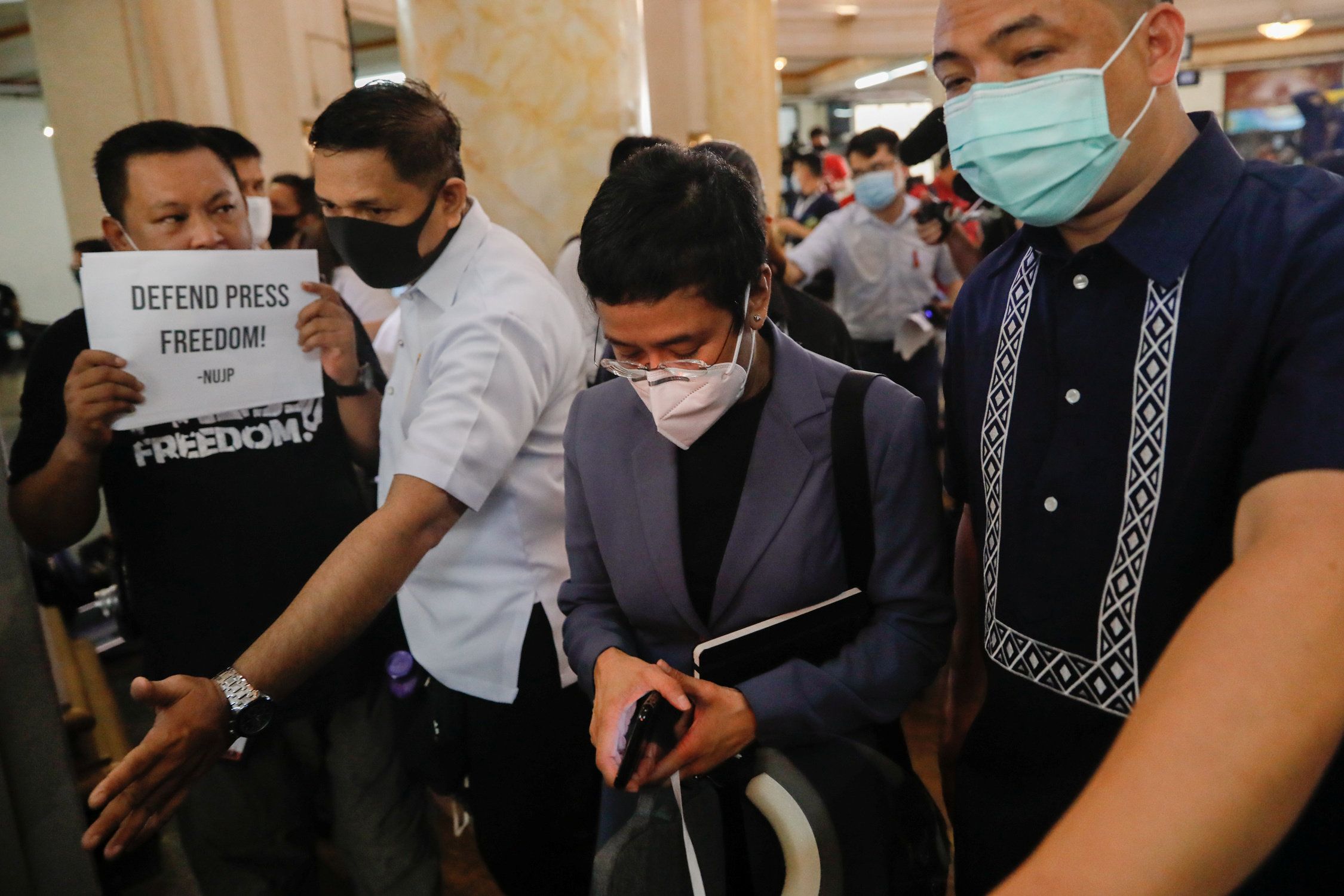Over a year ago, we reported on Maria Ressa's conviction for cyber-libel in the Philippines. While her appeal works its way through the country's byzantine justice system, today she won the 2021 Nobel Peace Prize. Below is our original piece published on June 15, 2020.
Ever since the rough-spoken populist Rodrigo Duterte was elected president of the Philippines in 2016, journalists have warned that his open disdain for the media would put press freedom in the country at risk.
On Monday, those fears were underscored when the authorities found Maria Ressa, an internationally-renowned journalist and fierce critic of Duterte's, guilty of libel under the country's cybercrimes law.
What's the back story? In 2012, the online news site Rappler, which Ressa heads, published an article linking a local businessman to illegal activities, citing an unnamed intelligence report. A Manila judged ruled that the article violated the libel provisions in a 2012 cybercrime law. But the story was actually published four months before that law even came into effect. The authorities cited a 2014 update to the article — merely to fix a series of typos — as justification for throwing the book at Ressa. Even then, the charges weren't filed until 2017.
Critics say the case against Ressa and Rappler is politically motivated. Duterte is no fan of journalists in general, but he has singled out Rappler over its coverage of his popular but bloody war on drugs. He has accused the news site of being a CIA front, and said Ressa is part of a conspiracy to topple the administration. The abuse was so bad that in 2018, TIME included Ressa among the journalists named Person of the Year for defying attacks on the press.
Ressa, for her part, has repeatedly warned that Duterte is weaponizing political institutions, as well as social media, to stifle dissent. Last year, she told GZERO Media that she feared the consequences of Duterte's allies winning control over the Senate, one of the last checks on his power. The cybercrime law has proven to be a powerful tool. A new anti-terror law — which allows detaining alleged "terrorists" for up to 24 days without a judicial warrant — will soon be approved as well.
Ressa's conviction also has wider implications for press freedom in the Philippines. Before the ruling, the Philippines had already slipped two places in the 2020 World Press Freedom Index to 136 among 180 countries, and it has already fallen 11 spots from where it was in the first full year of Duterte's presidency. Last month the government shuttered the country's top television network. Ressa's fate will make Filipino journalists even more hesitant to hold the government accountable.
This is part of a troubling global trend. Press freedom is under threat around the world. Not only in authoritarian countries, but in once-vibrant democracies – like the Philippines – where populist leaders are eroding institutions. The watchdog Freedom House has found that over the past five years, press freedom has declined in 16 of the world's freest countries.
What will happen to Ressa? She faces up to six years in prison, but will remain free while her appeal winds its way through the labyrinthine Philippine justice system. But things don't get any easier: Ressa and Rappler are also facing another 7 active charges.
Disclaimer: The author of this story is a former employee of Rappler.
More For You
Most Popular
In this "ask ian," Ian Bremmer analyzes Trump’s recent meeting with Zelensky and how close (or far) Russia and Ukraine are from a peace deal.
Syrian President Ahmed al-Sharaa attends the military parade of the Syrian army in Umayyad Square in central Damascus to mark the one-year anniversary of the fall of the Assad regime, on Dec. 8, 2025.
A year ago this month, Syria’s brutal dictatorship collapsed. There are signs of recovery, but sectarian violence threatens to undermine the optimism.
